Related Research Articles

Sputnik 1 was the first artificial Earth satellite. It was launched into an elliptical low Earth orbit by the Soviet Union on 4 October 1957 as part of the Soviet space program. It sent a radio signal back to Earth for three weeks before its three silver-zinc batteries became depleted. Aerodynamic drag caused it to fall back into the atmosphere on 4 January 1958. The world's first observation was made at the school observatory in Rodewisch (Saxony).

The Warsaw Ghetto was the largest of the Nazi ghettos during World War II and the Holocaust. It was established in November 1940 by the German authorities within the new General Government territory of occupied Poland. At its height, as many as 460,000 Jews were imprisoned there, in an area of 3.4 km2 (1.3 sq mi), with an average of 9.2 persons per room, barely subsisting on meager food rations. Jews were deported from the Warsaw Ghetto to Nazi concentration camps and mass-killing centers. In the summer of 1942, at least 254,000 ghetto residents were sent to the Treblinka extermination camp during Großaktion Warschau under the guise of "resettlement in the East" over the course of the summer. The ghetto was demolished by the Germans in May 1943 after the Warsaw Ghetto Uprising had temporarily halted the deportations. The total death toll among the prisoners of the ghetto is estimated to be at least 300,000 killed by bullet or gas, combined with 92,000 victims of starvation and related diseases, the Warsaw Ghetto Uprising, and the casualties of the final destruction of the ghetto.
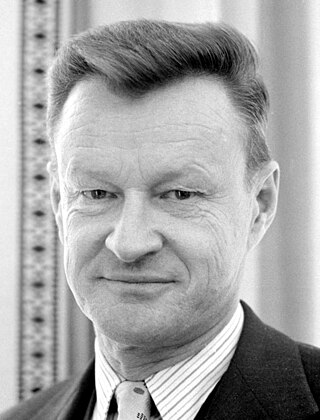
Zbigniew Kazimierz Brzeziński, known as Zbig, was a Polish-American diplomat and political scientist. He served as a counselor to Lyndon B. Johnson from 1966 to 1968 and was Jimmy Carter's National Security Advisor from 1977 to 1981. As a scholar, Brzezinski belonged to the realist school of international relations, standing in the geopolitical tradition of Halford Mackinder and Nicholas J. Spykman, while elements of liberal idealism have also been identified in his outlook. Brzezinski was the primary organizer of The Trilateral Commission.
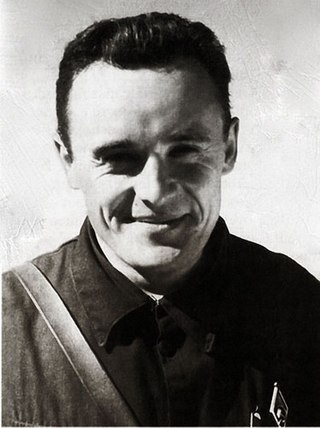
Sergei Pavlovich Korolev was the lead Soviet rocket engineer and spacecraft designer during the Space Race between the United States and the Soviet Union in the 1950s and 1960s. He invented the R-7 Rocket, Sputnik 1, and was involved in the launching of Laika, Sputnik 3, the first human-made object to make contact with another celestial body, Belka and Strelka, the first human being, Yuri Gagarin, into space, Voskhod 1, and the first person, Alexei Leonov, to conduct a spacewalk.

The Sputnik crisis was a period of public fear and anxiety in Western nations about the perceived technological gap between the United States and Soviet Union caused by the Soviets' launch of Sputnik 1, the world's first artificial satellite. The crisis was a significant event in the Cold War that triggered the creation of NASA and the Space Race between the two superpowers. The satellite was launched on October 4, 1957, from the Baikonur Cosmodrome. This created a crisis reaction in national newspapers such as The New York Times, which mentioned the satellite in 279 articles between October 6, 1957, and October 31, 1957.
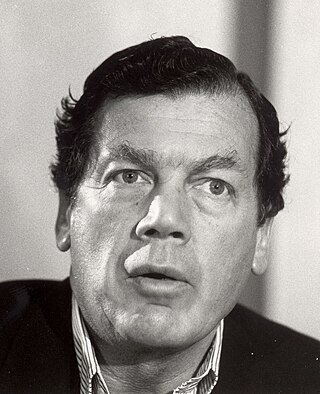
Edgar Miles Bronfman was a Canadian-American businessman. He worked for his family's distilled beverage firm, Seagram, eventually becoming president, treasurer and CEO. As president of the World Jewish Congress, Bronfman is especially remembered for initiating diplomacy with the Soviet Union, which resulted in legitimizing the Hebrew language in the USSR, and contributed to Soviet Jews being legally able to practice their religion, as well as immigrate to Israel.

Irwin Lawrence "Paul" Mazursky was an American film director, screenwriter, and actor. Known for his dramatic comedies that often dealt with modern social issues, he was nominated for five Academy Awards for Bob & Carol & Ted & Alice (1969), An Unmarried Woman (1978), Harry and Tonto (1974), and Enemies, A Love Story (1989). He is also known for directing such films as Next Stop, Greenwich Village (1976), Moscow on the Hudson (1984), Down and Out in Beverly Hills (1986), Moon over Parador (1988), and Scenes from a Mall (1991).

Charles Joseph Scarborough is an American television host and former politician who is the co-host of Morning Joe on MSNBC with his wife Mika Brzezinski and Willie Geist. He previously hosted Scarborough Country on the same network. A former member of the Republican Party, Scarborough was in the United States House of Representatives for Florida's 1st district from 1995 to 2001. He was appointed to the President's Council on the 21st Century Workforce in 2002 and was a visiting fellow at the Harvard Institute of Politics at the Harvard Kennedy School of Government. He was named in the 2011 Time 100 as one of the most influential people in the world.
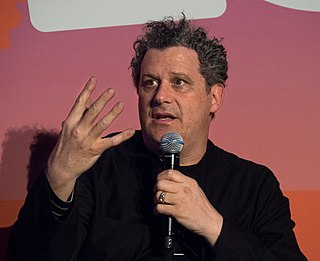
Isaac Mizrahi is an American fashion designer, actor, singer, television presenter and chief designer of the Isaac Mizrahi brand for Xcel Brands. Based in New York City, he is best known for his eponymous fashion lines. Mizrahi was previously a judge on Project Runway All Stars. In 2022 he played Amos Hart in the long-running Broadway revival of Chicago.

Anne Elizabeth Applebaum is an American journalist and historian. She has written extensively about the history of Communism and the development of civil society in Central and Eastern Europe. Applebaum also holds Polish citizenship.
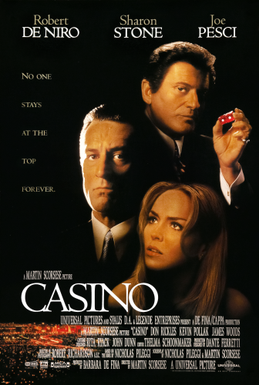
Casino is a 1995 epic crime drama film directed by Martin Scorsese, adapted by Scorsese and Nicholas Pileggi from the latter's nonfiction book Casino: Love and Honor in Las Vegas. It stars Robert De Niro, Sharon Stone, Joe Pesci, Don Rickles, Kevin Pollak, and James Woods. The film was the eighth collaboration between director Scorsese and De Niro.

The Warsaw Ghetto Uprising was the 1943 act of Jewish resistance in the Warsaw Ghetto in German-occupied Poland during World War II to oppose Nazi Germany's final effort to transport the remaining ghetto population to the gas chambers of the Majdanek and Treblinka extermination camps.

Sheldon Gary Adelson was an American businessman, investor, political donor, and philanthropist. He was the founder, chairman and chief executive officer of Las Vegas Sands Corporation, which owns the Marina Bay Sands in Singapore, and the parent company of Venetian Macao Limited, which operated The Venetian Las Vegas and the Sands Expo and Convention Center before selling the properties in early 2022. He owned the Israeli daily newspaper Israel Hayom, the Israeli weekly newspaper Makor Rishon, and the American daily newspaper the Las Vegas Review-Journal.
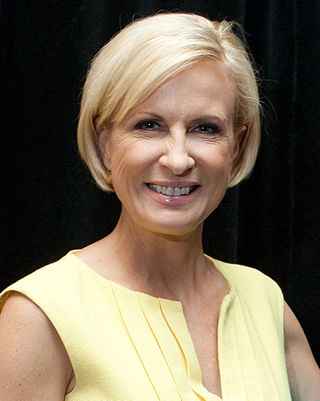
Mika Emilie Leonia Brzezinski Scarborough is an American talk show host who currently co-hosts MSNBC's weekday morning broadcast show Morning Joe alongside her husband Joe Scarborough. She was formerly a CBS News correspondent, and was their principal "Ground Zero" reporter during the morning of the September 11 attacks. In 2007, she joined MSNBC as an occasional anchor, and was subsequently chosen as co-host of Morning Joe.

In Poland, the resistance movement during World War II was led by the Home Army. The Polish resistance is notable among others for disrupting German supply lines to the Eastern Front, and providing intelligence reports to the British intelligence agencies. It was a part of the Polish Underground State.

Michael Dobbs is a British-American non-fiction author and journalist.

Mikhail Klavdievich Tikhonravov was a Soviet engineer who was a pioneer of spacecraft design and rocketry.

Masha Gessen is a Russian-American journalist, author, translator. Gessen is nonbinary and trans and uses they/them pronouns. Gessen has written extensively on LGBT rights.
Sputnik is a Russian state-owned news agency and radio broadcast service. It was established by the Russian government-owned news agency Rossiya Segodnya on 10 November 2014. With headquarters in Moscow, Sputnik maintains regional editorial offices in Washington, D.C., Cairo, Beijing, Paris, Berlin, Madrid, Montevideo and Rio de Janeiro. Sputnik describes itself as being focused on global politics and economics and aims for an international audience.
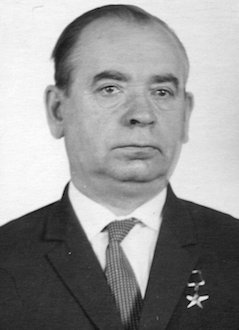
Leonid Alexandrovich Voskresensky was a Soviet engineer in the Soviet space program, and long-time associate of Chief Designer Sergei Korolev. He served as launch director for Sputnik and for the first crewed space flight, Vostok 1. The lunar crater Voskresenskiy is named in his honor.
References
- 1 2 3 Ford, Daniel (November 23, 2012). "The Eagle Unbowed". Wall Street Journal . Retrieved January 17, 2014.
- 1 2 Eakin, Hugh (November 7, 2004). "Just Like in the Movies". The New York Times . Retrieved January 17, 2014.
- ↑ Brzezinski, Matthew (July 24, 2005). "Giving Hitler Hell". Washington Post . Retrieved August 29, 2013.
- ↑ Brzezinski, Matthew (September 30, 2007). "Beep...Beep...Beep". Los Angeles Times . Retrieved August 29, 2013.
- ↑ "Matthew Brzezinski". Mother Jones . Retrieved August 29, 2013.
- ↑ Casino Moscow. Simon & Schuster. July 9, 2002. ISBN 978-0-684-86977-3 . Retrieved August 29, 2013.
- ↑ Cowell, Alan (June 10, 2001). "Off the Shelf: Tales of Greed in Post-Soviet Russia". The New York Times . Retrieved December 11, 2013.
- ↑ Brzezinski, Matthew. "Red Moon Rising". The Macmillan Company . Retrieved August 29, 2013.
- ↑ Atwood Lawrence, Mark (December 2, 2007). "The Sputnik Effect". The New York Times . Retrieved December 11, 2013.
- ↑ Pearlman, Robert (June 28, 2013). "CollectSPACE.com Editor". CollectSPACE.com. Retrieved August 29, 2013.
- ↑ Rosenbaum, Thane (December 14, 2012). ""Isaac's Army: A Story of Courage and Survival in Occupied Poland" by Matthew Brzezinski". The Washington Post . Archived from the original on December 22, 2012. Retrieved December 11, 2013.
- ↑ "2012 Winners of the National Jewish Book Awards". Jewish Book Council. Archived from the original on May 5, 2014. Retrieved August 29, 2013.